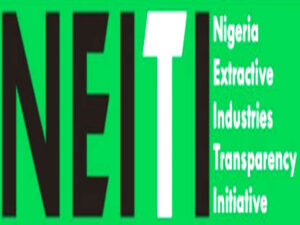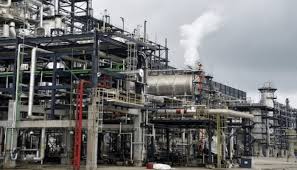Nigeria’s local refining operators have applauded the Federal Government’s approval of a 15 per cent ad valorem import duty on Premium Motor Spirit (PMS) and diesel, saying the measure will deter cheap foreign imports, safeguard domestic refiners, and bolster energy security.
In a confidential memorandum seen by LEADERSHIP Friday, dated 10 October 2025, and signed by Zacch Adedeji, Chairman of the Federal Inland Revenue Service (FIRS), and addressed to President Tinubu, the proposal sought approval for a “measured import tariff on PMS and diesel.”
A subsequent memorandum dated 21 October 2025, with reference number PRES8197/HAGF/100/71/FIRS/40/88-2/NMDPRA/2, was circulated from the State House to the Attorney-General of the Federation, the FIRS, and the Nigerian Midstream and Downstream Petroleum Regulatory Authority (NMDPRA).
The memo, signed by Damilotun Aderemi, the President’s private secretary, conveyed President Bola Tinubu’s approval for a new “market-responsive import tariff framework” on petrol and diesel imports.
In the confidential memorandum dated 10 October 2025 and circulated for presidential approval, officials framed the tariff as a targeted instrument to align import costs with Nigerian realities, nurture local refining capacity, and stabilise the downstream market under the Renewed Hope Agenda.
The memo, which was later formalised in a directive to the FIRS and the NMDPRA, outlined the rationale: the tariff serves as a corrective, market-sensitive tool designed to deter underpriced imports that undermine local refiners while preserving affordability for consumers.
Proponents say it signals government commitment to domestic production, currency stability, and investment certainty for Nigeria’s refining ecosystem, including the Dangote Refinery and modular plants.
Reacting to the development, the publicity secretary of the Crude Oil Refinery Owners Association of Nigeria (CORAN), Eche Idoko, said: “We consider the introduction of the 15 per cent tariff on imported refined petroleum products a welcome development, as it aligns with the national objective of promoting local refining and discouraging over-reliance on imported fuels.”
He, however, pointed out that the policy can only deliver its intended benefits if implemented alongside other supportive measures that strengthen domestic refining capacity.
“Without complementary policies—such as fair and stable pricing for domestic crude supply, guaranteed and timely crude allocation to local refineries, and the effective rollout of midstream and downstream intervention programmes—this tariff risks becoming counterproductive.
“In such a scenario, the policy may increase the cost of imported products without a corresponding increase in local supply, thereby creating artificial scarcity and imposing additional hardship on consumers, much like the experience that followed the removal of fuel subsidy,” Idoko noted.
To avoid this, he said the government must adopt a holistic approach that integrates trade protection with supply-side reforms.
“By ensuring that domestic refiners have access to affordable crude, finance, infrastructure, and a predictable policy environment, the 15 per cent tariff can serve as a catalyst for growth rather than a trigger for inflation or market distortion. Only through such a balanced implementation framework can Nigeria achieve the twin objectives of energy security,” he said.
Energy sustainability expert and management consultant Meka Olowola also described the President’s approval of a 15 per cent import duty on petrol as a deliberate effort to strengthen Nigeria’s refining sector and promote self-sufficiency.
According to Olowola, raising the cost of imported fuel gives local refiners, including Dangote Refinery, a better chance to compete.
He said the protectionist measure supports domestic production, safeguards jobs, and conserves foreign exchange that would otherwise fund imports.
Citing Reuters, he added that the duty could add about N99 per litre to the landing cost of imported fuel, making local refining far more viable.
He added that the policy also serves as a clear signal to investors that Nigeria is serious about building a sustainable downstream petroleum industry.
“In macroeconomic terms, the import duty supports Nigeria’s broader industrial and fiscal goals. It reduces pressure on foreign reserves, strengthens the naira, and enhances the country’s trade balance,” Olowola said.
Meanwhile, key marketing associations have embarked on a crucial meeting to address the emerging issues.
A key industry source confirmed this development to our correspondent, noting that marketers would soon adopt a harmonised position.
Energy analyst and CEO of AHA Consultancies, Dr Ademola Henry Adigun, said the Federal Government’s move to impose a 15 per cent duty on imported fuel is intended to protect Dangote and other local producers. However, he warned that insufficient competition in the local downstream sector could lead to monopoly.
“In the absence of sufficient local competition, the sector risks suffering a monopoly,” he said.
Responding to Dangote’s ability to meet Nigeria’s domestic demand, Adigun stated:
“He says he can, but there’s no evidence yet. We have to wait and see. Time will tell.”
He added that Nigerians would pay more for fuel if Dangote became a monopoly and could not meet local demand.
Chief partner at SPM Professional, Dr Paul Alaje, said the reason the Federal Government imposed the 15 per cent duty on imported fuel is to protect local producers, whose products may be more expensive than imported fuel.
He said the intention was to encourage local producers and stressed that it is very important for the country to have multiple refineries instead of just one, which could endanger Nigerians’ welfare if a single productive refinery encounters operational challenges.
He stated that the Dangote Refinery should not become a monopoly but rather serve to make Nigeria less dependent on foreign exchange fluctuations and to stabilise the nation’s reserves.
“The best way forward is to have stiff local competition, not local against foreign competition. Competition should be two, three, or four refineries, at best,” he said.
As to whether Dangote can meet Nigeria’s local demand, Alaje noted that the absence of fuel queues at filling stations might indicate an increase in market supply from Dangote.
With Dangote, Public Refineries Can Never Work Again – NLC
In a related development, the Nigeria Labour Congress (NLC) has warned that the establishment of the Dangote Refinery has effectively crippled the prospects of Nigeria’s public refineries ever functioning again.
It described the situation as a deliberate creation of monopoly that will deepen economic inequality and erode workers’ rights.
NLC President Joe Ajaero issued the warning yesterday at a conference in Abuja focused on internal resource mobilisation and the fight against poverty and inequality in Nigeria, casualisation and fair labour recruitment.
Ajaero said the Dangote Group’s growing dominance across key economic sectors threatens fair competition, job security, and national industrial development.
He warned that the unchecked expansion of such private monopolies could turn Nigeria into a “market dictatorship”, where prices are fixed and alternatives eliminated.
“Now, when you create monopoly, prices go up. With the establishment of Dangote Refinery, the public refineries can never work again in Nigeria. And you are celebrating it—why would a Nigerian state not be able to maintain one of its refineries? Why must the entire oil future of this country depend on one man’s refinery?” he queried.
The labour leader said the collapse of public refineries had deprived the country of thousands of skilled jobs and left millions of workers vulnerable to exploitative private structures.
According to him, the Dangote example is symptomatic of a wider pattern of corporate monopoly in Nigeria’s cement, sugar, and beverage industries, where unionisation is routinely suppressed.
“When you kill competition and silence workers, you are not building an economy; you are building a cartel,” he noted.
Ajaero also raised concerns over moves in the National Assembly to amend the Nigeria Social Insurance Trust Fund (NSITF) and Employee Compensation Act (ECA), describing them as attempts to hijack workers’ funds.
“There is a sinister attempt in the Senate to amend the NSITF and ECA Acts. This is nothing but a brazen attempt to capture the fund and divert it from its sacred purpose of protecting injured workers and their families, to using it for political ends.
“This fund is the lifeblood of worker solidarity, contributed by workers. It is not a slush fund for politicians, and we will resist this criminal appropriation with every fibre of our being.
“We are seeing an unholy move by the National Assembly to pass special laws that would grant a few powerful companies the licence to operate as islands of impunity, outside the known labour standards that govern our nation.
“These so-called ‘Special Economic Zone’ laws are a direct and violent breach of ILO Conventions 87 and 98 on the right to organise and collective bargaining, to which Nigeria is a signatory.”





